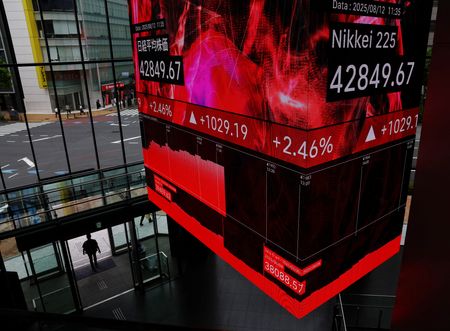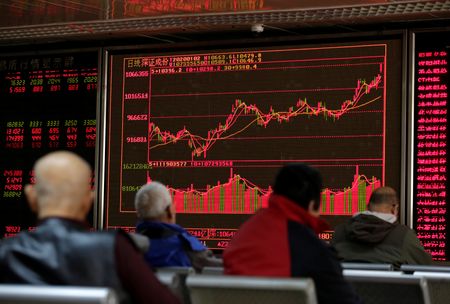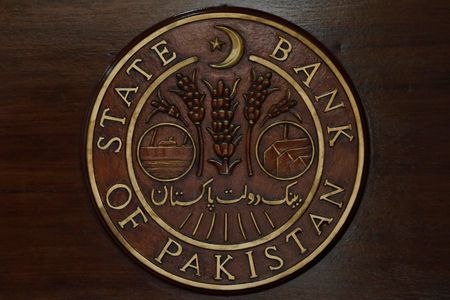By Veronica Dudei Maia Khongwir
BENGALURU (Reuters) -Malaysia’s economy grew at a steady pace last quarter as strong household consumption offset weak exports, a Reuters poll of economists showed.
Advance estimates showed the country’s second-quarter gross domestic product was supported by growth in the services and manufacturing sectors, reflecting healthy domestic spending.
The economy grew 4.5% year-on-year in the second quarter, in line with a preliminary estimate released in July, according to the August 5 to 12 Reuters poll of 23 economists.
Forecasts for the data, due out on Friday, ranged from 3.9% to 4.6%. Growth in the first quarter was 4.4%.
“High-frequency data across the board from retail sales, wholesale trade, motor vehicle sales, government spending, all of it suggests there has been a general improvement compared to the first quarter,” said Lavanya Venkateswaran, senior ASEAN economist at OCBC Bank.
“There is a definite resilience in domestic demand which has manifested in the second quarter, and there’s no sign anything is falling off a cliff just yet,” she added.
Exports were a weak spot. Trade activity slowed in the quarter with exports falling for a second straight month in June, down 3.5% from a year earlier, the lowest since December 2023 as shipments to China – Malaysia’s largest trading partner – fell 9.3%.
That, along with the potential impact of U.S. President Donald Trump’s 19% import tariffs, is expected to weigh on growth in the months ahead.
Bank Negara Malaysia cut interest rates in July for the first time in five years to support the economy due to a weaker outlook and rising global trade uncertainty, raising the prospect of another cut this year.
“The rate cut by BNM in its July meeting was cited as ‘pre-emptive’ in the face of global uncertainty,” said Denise Cheok, an economist at Moody’s Analytics.
“The ringgit has remained relatively strong against the greenback in recent months, providing the central bank with room to cut interest rates without raising concerns over currency weakness,” she said.
The Malaysian ringgit is up over 5% for the year.
A separate Reuters poll forecast Malaysia’s GDP to grow 4.2% in 2025, below the government’s 4.5% to 5.5% target range.
(Reporting by Veronica Khongwir; Polling by Pranoy Krishna and Susobhan Sarkar; Editing by Bernadette Baum and Joe Bavier)











